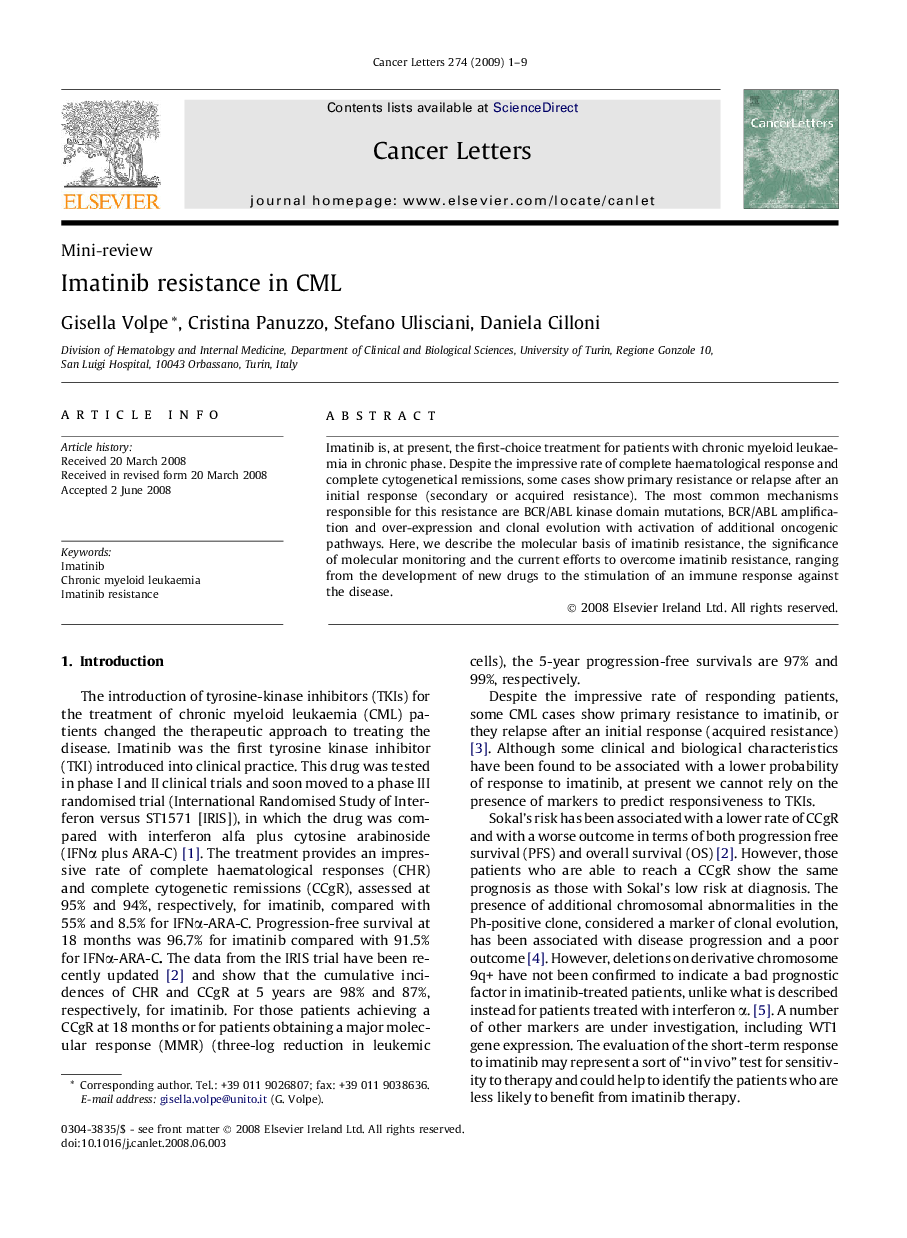| Article ID | Journal | Published Year | Pages | File Type |
|---|---|---|---|---|
| 2114572 | Cancer Letters | 2009 | 9 Pages |
Imatinib is, at present, the first-choice treatment for patients with chronic myeloid leukaemia in chronic phase. Despite the impressive rate of complete haematological response and complete cytogenetical remissions, some cases show primary resistance or relapse after an initial response (secondary or acquired resistance). The most common mechanisms responsible for this resistance are BCR/ABL kinase domain mutations, BCR/ABL amplification and over-expression and clonal evolution with activation of additional oncogenic pathways. Here, we describe the molecular basis of imatinib resistance, the significance of molecular monitoring and the current efforts to overcome imatinib resistance, ranging from the development of new drugs to the stimulation of an immune response against the disease.
